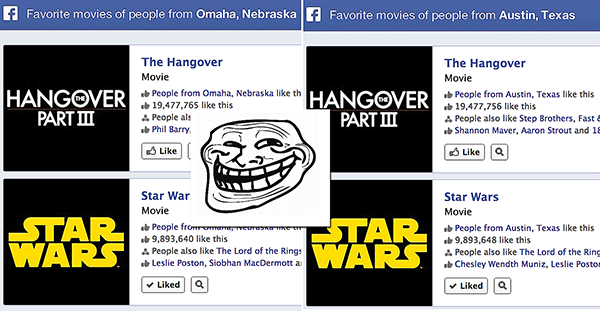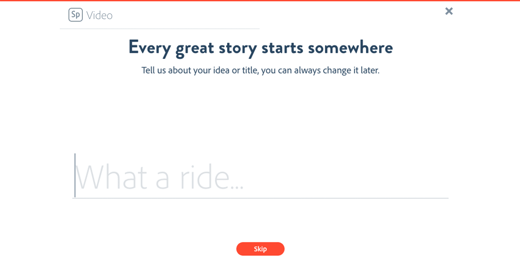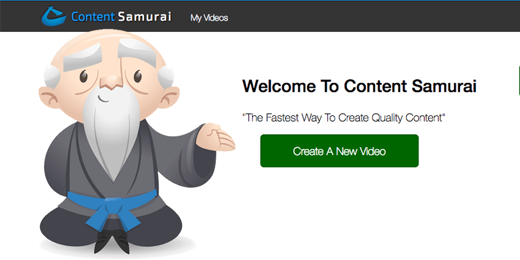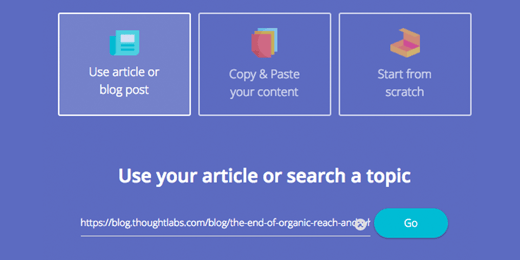
We all know social search is coming. We've discussed the details of Facebook Graph Search in a previous post. But there are several major hurdles that need to be cleared in order for it to truly become mainstream. Though the big players don't like to talk about it there are a number of things they will have to address in order to make the social search the solution to all of our search woes: generic non-specialized non-dimensional results, domination by a few big players (SEO or paid), and stale data. Here are six of the biggest problems preventing social search's adoption by the masses.
Privacy
We've all seen the demos of Facebook Graph Search. It's potential is amazing. So is it's potential for abuse. I just did the following on Facebook Graph Search: "People who like Justin Bieber and are under age 20 and live nearby".
I received over 100 results. Over 100 results of people that honestly look MUCH younger than 20, primarily female, and live nearby. I can message them (if I pay, depending upon the circumstances) or send them friend requests in a matter of minutes. Are many of them of legal age? Likely. But if even a few are not...
Think about that for a second. Because you can be sure many less innocent folks will.
Facebook's response to things like this has always been one along the lines of not supporting profiles for people under age 13 and using their privacy settings tools. Tools which have undergone more confusing cosmetic updates than the entire cast of a Real Housewives franchise. Personal responsibility plays a big role here but privacy -- especially for children -- is undoubtedly going to be a huge issue in coming years. And this issue could be a roadblock that stops social search in its tracks.
Power
…as in, computing power and data. VC conference room floors are littered with the business plans of lots of social search startups and more than a few have joined the deadpool. A few, like YourTrove, are making a go of it. What's the biggest hurdle here? Prior to Facebook no one had the data required to really make social search 'work' efficiently. The 'semantic web' we were all expecting was farther off than once thought. Why? Social search is HARD. REALLY hard. It takes vast amount of processing power and enormous data sets to be feasible. That processing power needs to be cheap and distributed. Facebook is just starting to crack this nut and it has over a BILLION users. These are numbers that all of us would have laughed at a couple of years ago. Facebook's Graph Search is currently in "very early beta" and is significantly limited in both scope and functionality, supporting people, Likes, Places, Pages, Events, Applications, Groups, and Checkins and not much else. Comments and Tags are coming sometime.
One of the big problems in social search has been the problem of tagging or classifying content so that it's discoverable in a systematic way. The ontologies or taxonomies of tagging are a thorny academic subject; however, the bottom line is that tagging is messy. Systematic search doesn't like messy. I tag bacon as 'awesome,porky,smoky,sexy' and a bacon-hating or -abstaining friend might tag it, 'disgusting,evil,poison,cruel.' Looking at that set of tags do you get 'bacon?' Or something completely different? One of my friends got 'sex' out of that. Warped, perhaps, but it proves how complex the processing tasks involved have become. Social networks temporarily solved the tagging problem by simplifying tag taxonomies to their base elements: Likes, Shares, +1's, checkins, and the like. But to be truly useful social search will have to move beyond these restrictive taxonomies. Everyone at one time or another has wanted to be able to search by 'hate' instead of Like, no?
Prevalence
Ah, the "Disconnected Me" problem. What if I don't Like anything on Facebook? What if my profile is nearly completely, opaquely private? In order for social search to be truly a challenger to keyword search people are going to have to use the platforms on which it depends. And use them in the most public ways possible. Heavy tech-savvy users will see the value but they are not 'normal' users. This issue is personified in the simple 'give to get' mantra found on the pages of every content marketing blog. On Facebook that means actually Liking, tagging (soon), and commenting on (soon) content. Conversely businesses or brands that want to be found via social search need to be sure they have complete presences on these networks. Many, if not most, people -- especially casual users -- simply don't use Facebook that way. Many local businesses not only don't have Facebook presences but don't have the resources to create and maintain them and keep them churning out fresh content to remain relevant. I'm looking at you, EdgeRank… As Danny Sullivan from Search Engine Land simply states: "
"Not only have I not liked my electrician, my plumber, my dentist, my doctor or my tax person on Facebook, but I don’t even know if they have Facebook pages. I have nothing to offer ... in this regard."
Profit
This one is easy. If marketers, advertisers, and businesses can't make money, the question of social search adoption is moot. If users don't feel like they are profiting from the results they are getting with social search It will become another 'neat' feature that fades into obscurity as everyone goes right back to their Google omni bar and searches for that Chinese restaurant their friend at Facebook recommended in San Francisco.
For Facebook, Graph Search has the potential to be a cash cow. When Facebook presented EdgeRank in 2010 Facebook gave us insight into what they use to determine if content was important enough to show up the Feed. The main problem with its use was that pesky time delay variable: new content was always favored over old, content affinity and weight being equal. Graph Search removed that time delay. Sure, affinity and weight still play a roll, but since search is a user-initiated 'pull' activity time delay will not be as influential. But fan counts will. Facebook has admitted it favors objects in the graph with more Likes as more important. This means that businesses are going to need to build and maintain social presences on or off Facebook (perhaps via Open Graph Protocol tags) and garner likes just like the old days of the social media land grab. Not that Likes have ever stopped being relevant; however, the recent push toward a content-focused approach to social media have lessened their appeal from a marketing perspective. No more.
Personalization
Personalization -- especially perceived -- is a shortcoming of the current implementation of Facebook's Graph Search. Sure the demos were impressive. Multidimensional search is a game-changer about which marketers and advertisers are salivating. But the data has to prove its worth. It's cool to know that the favorite movies of people from Austin, Texas are Hangover Part III and Star Wars. Guess what the favorite movies are of people from Omaha, Nebraska?
 How good IS Hangover Part III?
How good IS Hangover Part III?
Right. The same thing.
Sure this is a contrived example but it proves an important point. For social search to be truly effective I want my results to show me personalized results I can't find elsewhere. If I do a search for the best vacation spot and my Mom does the same I certainly don't want to end up at the same hotel pool. Really. I mean… really. This is one of the big shortcomings of keyword-based search: there are proven ways to use SEO to rank at the top of SERPs but honestly how often do the results change? Not often. Social search must be personalized to show me results that matter to me. And the results need to be novel and dynamic. Targeting is the marketer's and advertiser's bread and butter; Facebook Graph Search is going to have to bake up something other than white bread in order for it to be widely adopted.
Social search results are never going to fully replace keyword-based results. As Ovum technology analyst Jan Dawson states, "Facebook is never going to answer your homework questions." If I am searching for 'particle physics' I want to know about particle physics, not what my friends think, feel, tag, or like about it. Facts will always be facts. And keyword-based search will always be the vehicle for delivering them.
Policy
Oh the legal woes of our social networking and software giants in the EU and elsewhere outside the US. In order for social search to compete it has to be global. But many countries' privacy laws and political systems are not very open to the sharing of personal data that can be associated with a particular physical person, anonymized or not.
The EU is a hotbed of such problems, especially Germany with its Bundesdatenschutzgesetz -- BDSG for short. This progressive and comprehensive set of data protection and privacy laws is designed "...to protect individuals against infringement of their right to privacy as the result of the handling of their personal data." It's been the backbone of a lot of recent legislation including the furor over Facebook's facial recognition feature, the Facebook Like button being declared illegal, and pretty much everything else. Despite the issues it appears Germans have overwhelmingly embraced Facebook, Google, and other social networks. But simply refer to the Justin Bieber example I showed at the start of this post. How do you think something like that is going to fare under the watchful eyes of the BDSG? I'd say sit back and watch the pretty fireworks.
In order to be truly a game-changer social search is going to have to come to terms with international policies and governments that may not be amenable to its need for personal data; moreover, many of the people in these countries may not trust it, or the companies backing it, to begin with.
What Next?
These are just a few of the hurdles facing social search, especially Facebook's Graph Search. It will be interesting to see how and if the major networks address these but you can be sure they will. With Google claiming over 66% of the search market there is little doubt that their Google+ efforts are not for show or to be the 'next Facebook.' They have every intent of cracking the social search market wide open. Time will tell how wide those cracks will be. But you can be sure that everyone is watching.
We'll see in the coming months how the rollout of Facebook's Graph Search is received. How many of you are using it? What are your concerns? Do you see this technology as revolutionary or evolutionary?
Mar 4, 2013



